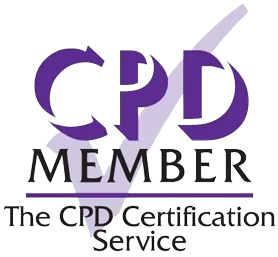29 Mar 2025
Recommended
Minimum 30 mins
Course
Access
Certification
Voiceover

Anxiety disorders are among the most widespread mental health conditions, profoundly affecting individuals and the healthcare system in the UK. The Anxiety Awareness for Healthcare Professionals course provides participants with the knowledge and skills needed to identify, assess, and manage anxiety disorders across diverse clinical settings.
This course offers a thorough exploration of anxiety disorders, including Generalised Anxiety Disorder (GAD), Panic Disorder, Social Anxiety Disorder, Post-Traumatic Stress Disorder (PTSD), Obsessive-Compulsive Disorder (OCD), and Specific Phobias. Participants will gain insights into recognising symptoms, understanding underlying causes, and applying evidence-based diagnostic and treatment strategies.
The training emphasises culturally sensitive approaches, personalising care to meet the needs of patients from diverse backgrounds. It also explores the role of psychoeducation, counselling, and interdisciplinary collaboration in managing anxiety. Finally, the course highlights self-care techniques to help healthcare professionals maintain their well-being while delivering compassionate, effective care.

 £20
£20
Learning Outcomes.
By the end of this course,participants will be able:
To understand the various types of anxiety disorders and their clinical presentations.
To recognise symptoms of anxiety disorders and differentiate them from normal stress responses.
To assess and diagnose anxiety disorders using evidence-based tools and criteria.
To explore evidence-based treatment approaches, including therapy, pharmacology, and integrative methods.
To provide culturally sensitive care tailored to the unique needs of diverse patient populations.
To advocate for mental health resources and support interdisciplinary approaches to anxiety management.
Course
Contents.
01
Definition, prevalence, and impact on individuals and healthcare.
03
Identifying physical, psychological, and behavioural manifestations.
05
Screening tools, DSM-5 diagnostic criteria, and differential diagnosis.
08
Confidentiality, duty of care, and cultural competence in mental health care.

06
Cognitive Behavioural Therapy (CBT), exposure therapy, medication, and holistic approaches.
09
Collaborative care, advocacy, and improving access to mental health services.
02
Generalised Anxiety Disorder, Panic Disorder, PTSD, OCD, phobias, and related conditions.
04
Examining biological, psychological, environmental, and sociocultural contributors.
07
Role of counselling, peer support, and resilience-building in treatment.
10
Strategies for maintaining personal mental health while supporting patients.
This course empowers healthcare professionals with the skills to manage anxiety disorders effectively. Participants will learn to identify symptoms, apply evidence-based treatments, and deliver culturally sensitive care, ensuring improved patient outcomes and advocacy for mental health awareness. By fostering resilience in both patients and practitioners, this course contributes to a more compassionate and effective healthcare environment.
 Summary
Summary


